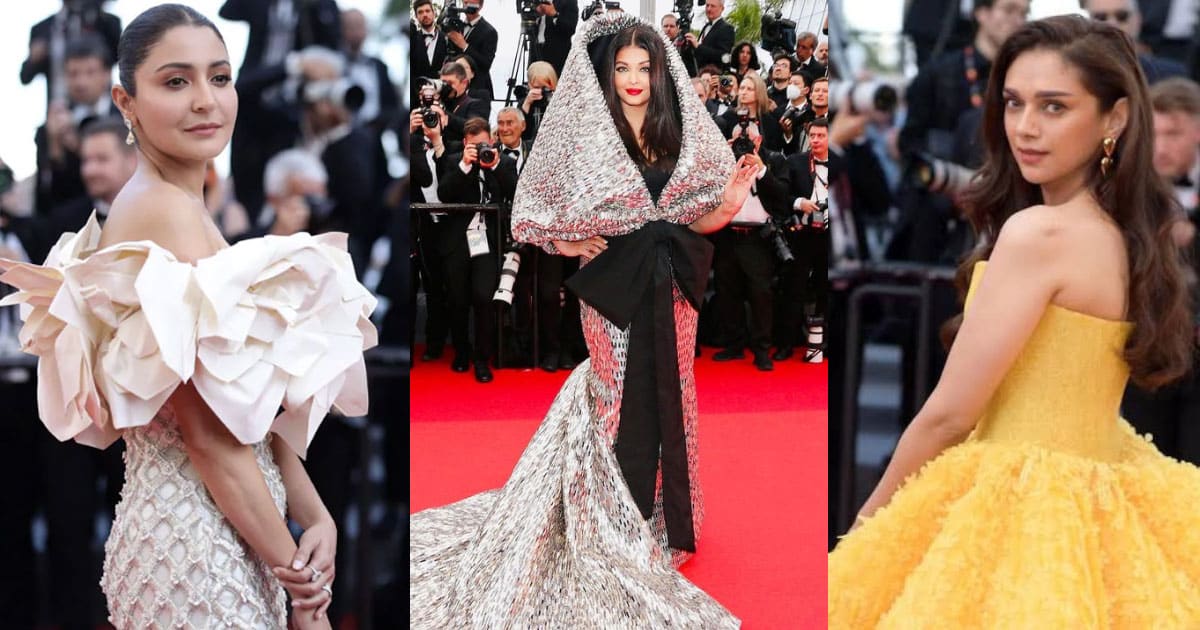The Cannes Film Festival is renowned for its glitzy red-carpet events, where celebrities and fashion take center stage. However, amidst the glamour and fashion frenzy, examining whether Cannes is primarily about the red carpet or it genuinely prioritizes films is crucial.

Cannes as a Cinematic Showcase
At its core, the Cannes Film Festival is undeniably dedicated to celebrating the art of cinema. For over seven decades, Cannes has stood as a prestigious platform for filmmakers to showcase their works to a global audience. The festival’s line-up comprises diverse films, ranging from established directors’ latest offerings to emerging talents’ breakthrough creations.
Cannes has played a pivotal role in launching the careers of numerous acclaimed filmmakers, winning the coveted Palme d’Or representing the pinnacle of achievement.
Cannes has been the launching pad for numerous iconic films that have left an indelible mark on cinematic history. One prime example is Quentin Tarantino’s Pulp Fiction (1994), which premiered at Cannes and won the Palme d’Or. The film became a cultural phenomenon, influencing a generation of filmmakers and solidifying Tarantino’s status as a visionary director.
Another example is Jane Campion’s The Piano (1993), which also premiered at Cannes and received widespread critical acclaim. The film not only won the Palme d’Or but also garnered multiple Academy Award nominations, including Best Director and Best Actress. Cannes recognized the film’s artistic merit and contributed to its international success and recognition.
The Allure of the Red Carpet
While Cannes undeniably captivates attention with its glamorous red-carpet events, it is essential to recognize their role in the festival’s identity. The red carpet showcases the convergence of cinema and fashion, drawing international media coverage and public fascination. Celebrities, filmmakers, and industry professionals gather to celebrate their works, creating an atmosphere of excitement and anticipation.
The red carpet at Cannes serves as a symbol of glamour, style, and luxury. It captures the imagination of fashion enthusiasts worldwide, with actors and actresses donning exquisite designer outfits that become a topic of conversation and admiration. The red carpet events allow filmmakers to promote their films and generate buzz, attracting attention and potential distribution opportunities.
One memorable red carpet moment was in 2017 when Nicole Kidman entered wearing a stunning Calvin Klein gown. Her presence and fashion choice garnered significant media attention, creating buzz and generating additional interest in the films she was associated with, including The Killing of a Sacred Deer and The Beguiled, both premiered at Cannes. From India, Aishwarya Rai’s costumes have been under the (Fashion) critic’s radar over the years.
However, critics argue that the prominence of the red carpet can overshadow the festival’s cinematic achievements. The excessive focus on fashion and celebrity culture can detract from the artistic integrity and profound impact of the films showcased. Detractors argue that the red carpet glamorizes celebrity culture, shifting the narrative away from the movie.
The Rise of Influencer Culture
The rise of social media platforms has led to influencer culture, where individuals with a substantial online following have the power to shape trends and influence consumer behavior. Influencers have become significant players in marketing and promotion, partnering with brands and creating content that resonates with their audiences. Their influence is rooted in their ability to connect with followers on a personal level and present an aspirational lifestyle.
As Cannes strives to remain relevant in the digital age, the presence of influencers on its red carpet has become increasingly prevalent. Brands and designers recognize the potential for reaching a wider audience through influencer collaborations, using the festival as a platform for promotion.
However, the influx of influencers can divert attention from the films and overshadow the festival’s primary purpose. Critics argue that the focus on fashion and personal style on the red carpet often overshadows the artistic achievements of the filmmakers and the powerful narratives depicted in the showcased films. Instead of discussing artistry and storytelling, the conversation centers around the influencers’ outfits and social media presence.
The festival should be a platform for filmmakers to showcase their work, receive recognition, and engage in meaningful discussions about their craft. However, the dominance of influencers can shift the narrative and create an environment about personal branding and social media clout.
While the presence of influencers at the Cannes Film Festival may provide opportunities for brands and designers to reach a broader audience, it is essential to strike a balance between their presence and the festival’s core focus on films. Cannes must find ways to maintain its status as a premier film festival while navigating the evolving landscape of influencer culture. By preserving the integrity and artistic significance of the showcased films, Cannes can ensure that the festival remains a true celebration of the cinematic art form.
Finding Balance and Synergy
In the debate surrounding the Cannes Film Festival, it is crucial to find a balance between recognizing the significance of both the red carpet and the films. While the red-carpet events provide an alluring backdrop and generate media attention, they should maintain the festival’s primary purpose of celebrating outstanding cinematic achievements. Cannes can thrive by maintaining a harmonious synergy between the glamour of the red carpet and the cinematic brilliance of the films showcased.
The Cannes Film Festival is an event at the intersection of film and fashion, with both aspects contributing to its appeal. While the red-carpet events create a glamorous aura and generate excitement, they should uphold the festival’s dedication to cinematic excellence.
Cannes is a robust platform for filmmakers to showcase their works, fostering international dialogue and appreciation for the art form. The true essence of Cannes lies in striking a delicate balance between the allure of the red carpet and the enduring power of exceptional films, ensuring that both aspects are celebrated and acknowledged for their respective contributions.



